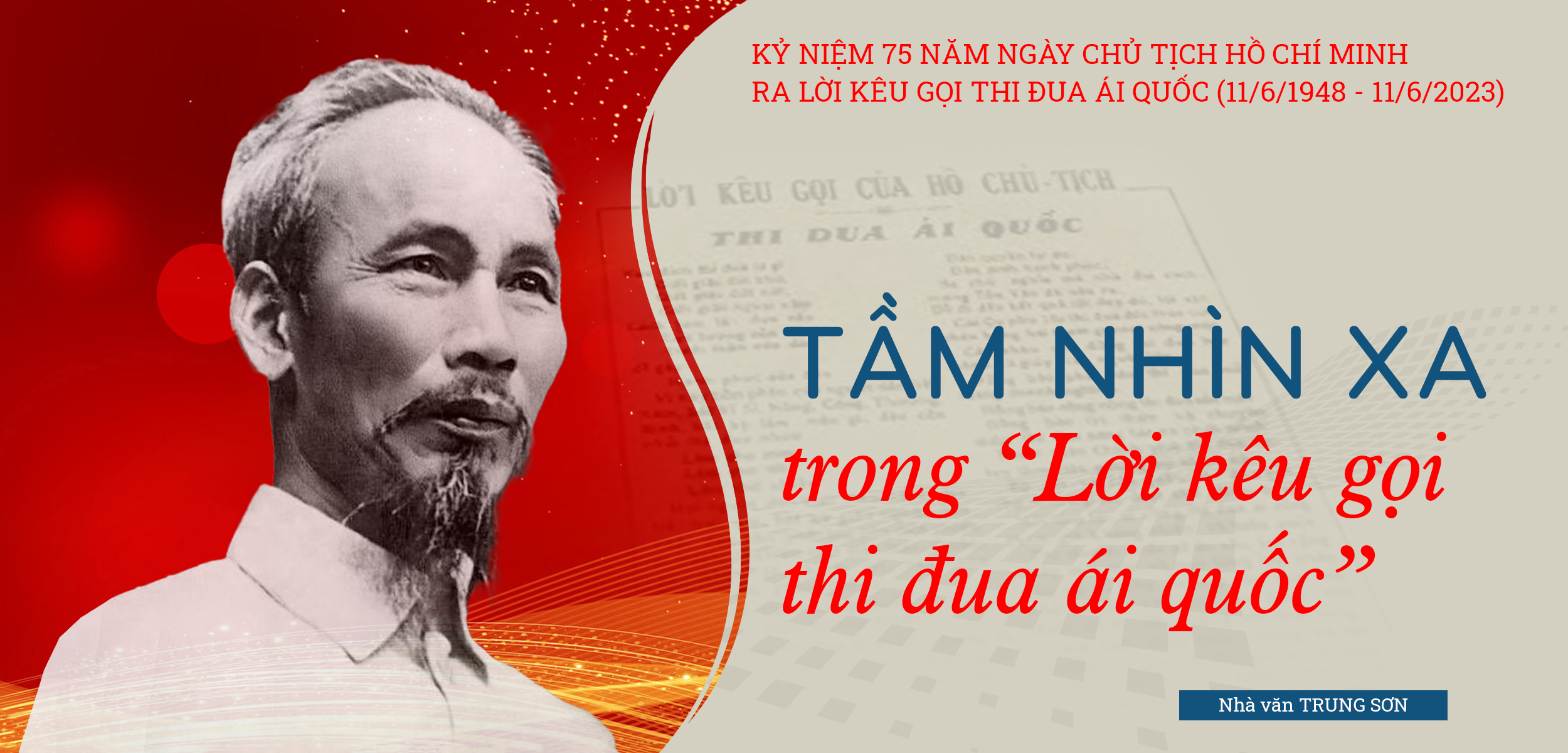
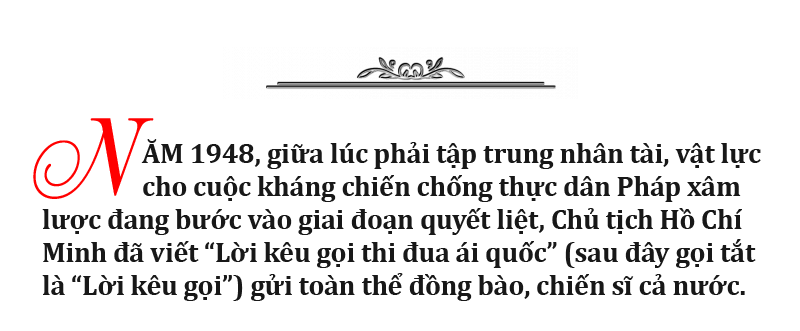
Since that day, exactly 75 years have passed, our country has overcome two long marches, gained independence, peace and unity - the goal that President Ho Chi Minh had stated in the "Appeal". The economic development, building a "fair, democratic, civilized society" is taking place under a new mechanism: Market competition is no less fierce between units, localities, countries and between people. All aim to achieve the highest efficiency, determined to win for themselves and their units. Therefore, up to now, local emulation committees have been dissolved, the way to launch and organize emulation movements is also sparse, not as bustling as before.
That is reasonable, when economic and social activities are mainly based on the law of competition, the "empty" way of calling for emulation, paying little attention to human interests, and focusing on the form of "flags - lights - trumpets - drums" with easy-to-remember rhyming slogans is no longer very effective.
However, re-reading President Ho Chi Minh's "Call for Patriotic Emulation" written 75 years ago, I suddenly realized that there is still much valuable content that needs to be thoroughly understood when applied to current specific conditions.

First of all, the name “Patriotic Emulation” itself has a purpose, a noble beauty, expressing the patriotic tradition of our nation. A unit, a locality, thanks to fierce competition, wins a production project with high profits, but the more production develops, the more the environment is degraded, poisoned (such as emitting smoke, coal slag containing many toxins), it cannot be called “patriotic - patriotic”. Life cannot be without material things, almost everyone strives to achieve wealth, but the more society progresses, the more people pay attention to spiritual and moral values. Setting the purpose of emulation as “patriotic - patriotic”, not to win this or that title with big bonuses - will make all the ordinary daily activities of people take on a new, nobler meaning, limiting the negative aspects of competition - when people only know about “winning - losing” and group interests. With the spirit of "patriotism", some localities have refused "huge" projects to protect the environment and ecology; some hotels have refused to accept tourists who behave arrogantly, lack culture, or insult national traditions, even though this means their income will decrease.
We also need to note that, in the midst of the war, in his “Appeal” 75 years ago, President Ho Chi Minh highly valued merchants and businesses. This shows that, among the 7 classes of people he called for, President Ho Chi Minh mentioned the “industrial and commercial” force before workers, farmers, intellectuals, government employees and militia: “Compatriots in industry and commerce compete to expand their businesses.”.Unfortunately, there were times when, perhaps due to the pressure of a certain "policy", some departments and branches "forgot" President Ho Chi Minh's view of the industrial and commercial sector right from the difficult resistance period, so they hastily issued policies that caused heavy damage to traders and businesses, causing the whole economy to suffer. Fortunately, recently the State has recognized the "industrial and commercial sector" as an important force contributing to the national economic growth, creating many jobs for society. We need to look back like that to see how far-sighted President Ho Chi Minh was in his "Appeal" 75 years ago.
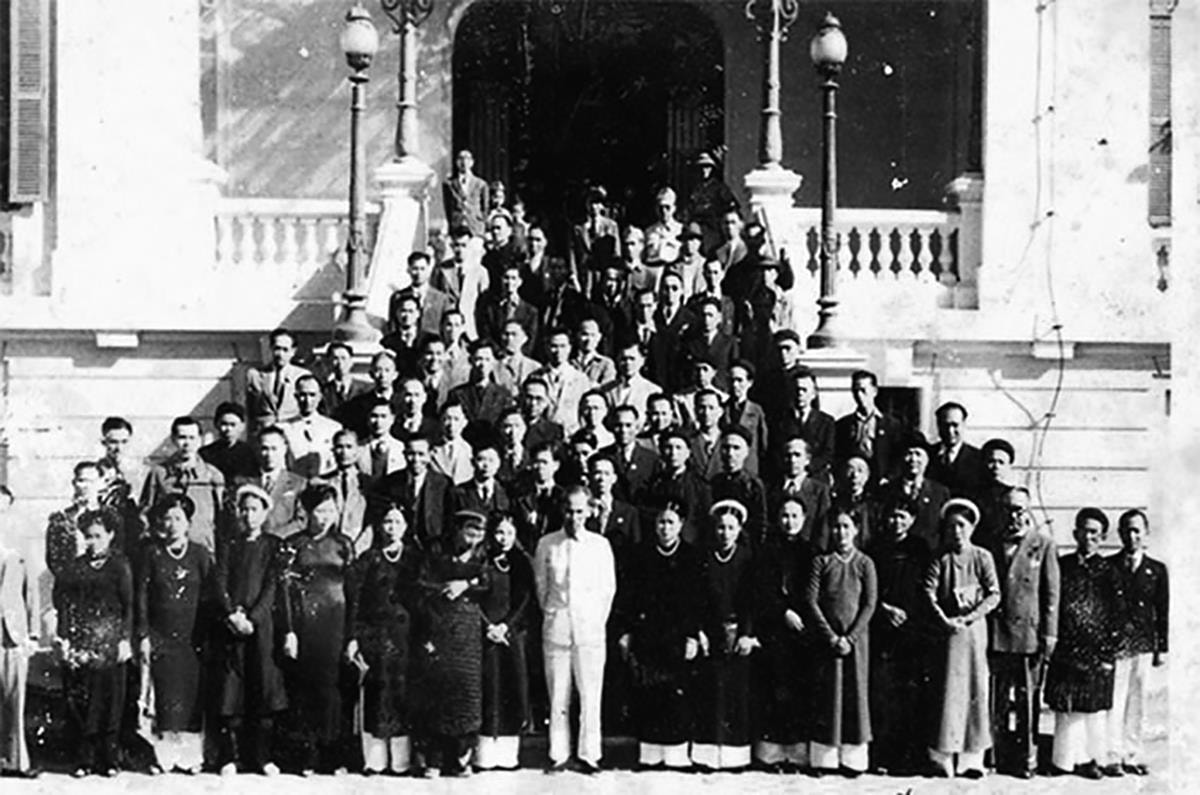
With the same vision, after stating the specific results of patriotic emulation such as people having enough food, enough clothes, knowing how to read and write, soldiers having enough food and weapons to kill foreign invaders, President Ho Chi Minh pointed out a more noble goal, with more humanistic values, which is "realizing National Independence, Civil Rights, and People's Happiness". It is called vision because up to now, we increasingly realize that the goals of "Civil Rights, Freedom, and People's Happiness" are more difficult to achieve than driving out invaders. It is easy to see that more than 40 years after the end of the war, although the country has had undeniable changes, many remote areas still lack jobs, life is very difficult, children in many localities still have to work hard (called labor export) in far away countries, in harsh weather...
Then, some basic rights that President Ho Chi Minh himself mentioned in the first Constitution in 1946, until now, the National Assembly has not yet been able to enact into law... The goal of "National independence" is still being constantly challenged when a part of the territory in the East Sea has not been recovered and we still have to often uphold the spirit of "independence and autonomy" in international relations or when deciding on policies that need the support of international financial institutions... Therefore, the main spirit of "patriotism - love of country" in President Ho Chi Minh's "Appeal" in 1948 is still the "compass" in the country's construction today.
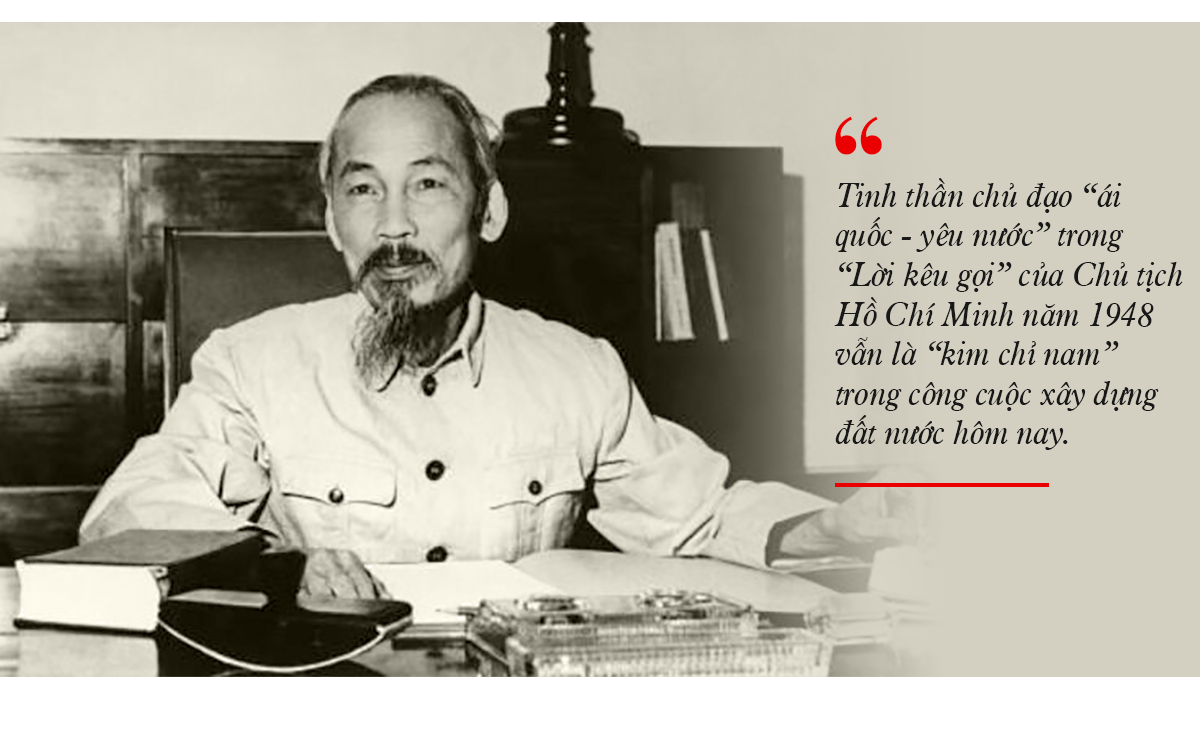
In the “Appeal”, although as the supreme leader of the nation, after pointing out the 3 goals mentioned above, President Ho Chi Minh sent his message to 7 classes of people (the elderly, children, workers and traders...) with a very humble attitude, in the spirit of “people are precious” that only President Ho Chi Minh has:
“To achieve that good result, I would like to…
The elderly…
Rich fellow countrymen…”
Let me emphasize that “I request”, while President Ho Chi Minh had the full right to “order”, or at least “recommend”. Today, looking at some cadres at ward and neighborhood level who have been authoritarian with the people and, for example, the “right turn allowed” signs at some intersections, it gives the impression that the cadres of units and bases seem to only know how to shout empty slogans, not following the example (or not knowing) of Ho Chi Minh’s specific morality!
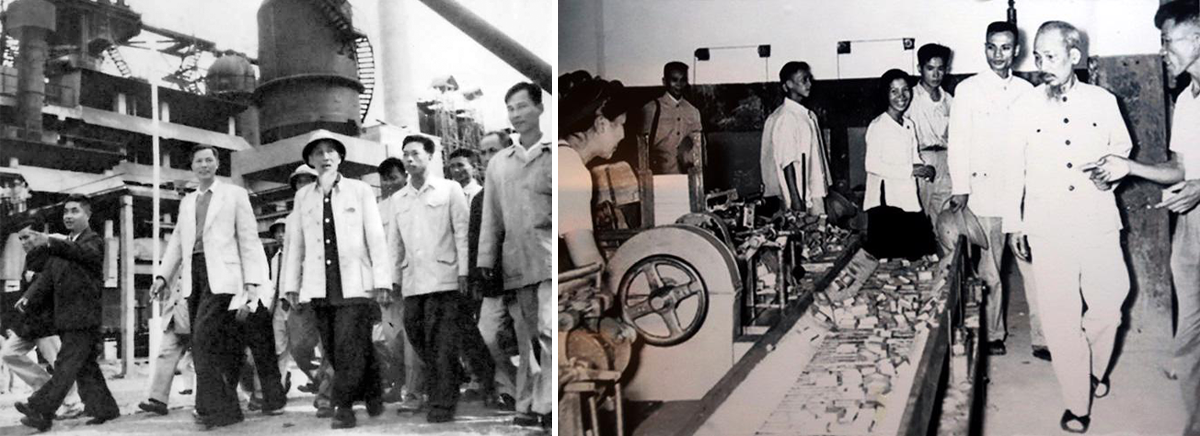
Therefore, let me reiterate what President Ho Chi Minh "asked" for at all levels of State officials as follows: "Government employees compete to work wholeheartedly to serve the people." That is also what the entire population is currently hoping that officials at all levels will be able to do, especially when our Party, National Assembly and State have just strongly put on the agenda the reform and rectification of the apparatus serving the people to suit the requirements of the Doi Moi process and the new trends of the times.
President Ho Chi Minh's "appeal" was written 75 years ago, so it is still relevant./.
|Illustration: Document
|Design - Engineering: Thuc Linh
